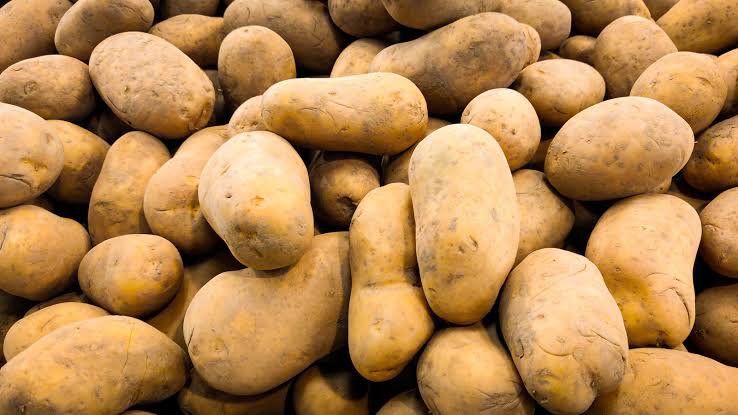Refrigeration is a vital technology for the preservation of food and the development of the home kitchen.
The refrigerator was developed for commercial use in the 1850s but was popularised by General Electric’s (GE) monitor-top refrigerator in 1927.
ATTENTION: Click “HERE” to join our WhatsApp group and receive News updates directly on your WhatsApp!
However, storing foods in your fridge even when you’ve decided on the perfect temperature to set your refrigerator, can not only alter the taste and texture of the food, but in many cases, it can make the food unusable or unsafe for the home cook.
Hence, there should be a distinction between what food should or not be stored in the refrigerator.
Here are some of the foods you should not store in your refrigerator.
1. Oil

Cooking oils, including olive oil, sunflower oil, and canola oil, are essential ingredients for sautéing, baking, and frying.
However, a lot of things can happen if you refrigerate cooking oil. Naturally, the different fat levels in these oils will alter the preferred storage method.
But this excludes high polyunsaturated or monounsaturated fats, according to Delighted Cooking. Safflower oil, for example, will keep at room temperature for up to two years or in a refrigerator for a much shorter six-month window.
While high saturated fat oils, like lard, palm oil, and coconut oil, should be stored at room temperature and in a dark place. Light infiltration will alter the oil’s quality, so we recommend leaving it in your cabinet.
Similarly, olive oil has the potential to harden when placed in a refrigerator, so it is recommended to place the bottle in a cool, dry place in the kitchen rather than in the fridge.
2. Whole Melons

This next tip would make you wonder “why in the world is it a bad idea to refrigerate watermelon?”
Watermelon should only be placed in the refrigerator under two conditions: If it has already been cooled (like the chunks pre-packed at the grocery store) or if it is cut. A whole watermelon in the fridge not only takes up a lot of space but can also negatively impact the taste, texture, and color of the fruit.
Surveys by the USDA’s Agricultural Research Service revealed that refrigerating whole watermelons causes a loss of antioxidants that were not observed in watermelons left out at room temperature.
Instead, leave your uncut watermelon on your kitchen counter for up to ten days — or until you are ready to slice it.
This law is also applicable to whole cantaloupes. It can also be left out at room temperature for a few days. If your cantaloupe is not fully-ripe at the time of purchase (distinguished by a green rind), leave it on your counter for one to two days before slicing.
You’ll know your cantaloupe is ripe when the rind yellows. You can then store it in the refrigerator for up to three days after cutting.
3. Raw Potatoes

Raw potatoes are best kept away from the refrigerator. Like other root vegetables, including turnips and carrots, the potato can last up to three months stored in a cool dark pantry at around 50 F or root cellar.
The fridge is much too cold for the potato, and a few different things can happen if you refrigerate raw potatoes.
When the potato is too cold, it begins converting starches into sugars; this leads to discoloration of the potato’s exterior as well as a notably off-putting texture.
Some research indicates that storing potatoes in a refrigerator also leads to the release of acrylamide during the cooking process.
This chemical is known to the Food and Drug Administration to cause cancer in lab animals.
According to Idaho Potatoes, peeled potatoes can be left covered in water in the fridge for 24 hours.
Home cooks should also place cubed peeled potatoes in water and refrigerate them.
The water will slow the peeled potatoes’ natural darkening process and keep them fresh for when you use the potatoes next.
4. Unripe Avocados

For most avocado fans, buying avocados at the store means strategically planning your meals around when the avocado will ripen enough for guacamole or avocado toast.
At this point, leaving the avocado on your counter is the best way to cause the fruit to ripen; however, leaving it in the fridge only slows down the ripening process.
Once the avocados are ripe, the fridge can then become one of the best ways to keep avocados fresh so long as you place the fruit in the crisper drawer.
The low-humidity environment will keep the avocado in top conditions a few days longer than plopping it in the center of the fridge.
Earlier in 2022, a viral avocado storage hack took the Internet space when Iisa Couch Williams’ FaceBook page suggested submerging ripe avocados in water in the fridge for up to four weeks to keep the fruit fresh.
Not only is this hack unnecessary, but it can also be dangerous. Listeria and salmonella bacteria (which can be found on the surface of avocados) can multiply in water and potentially contaminate food.
Rather, it is advised to store ripe avocados in the fridge w no water.

